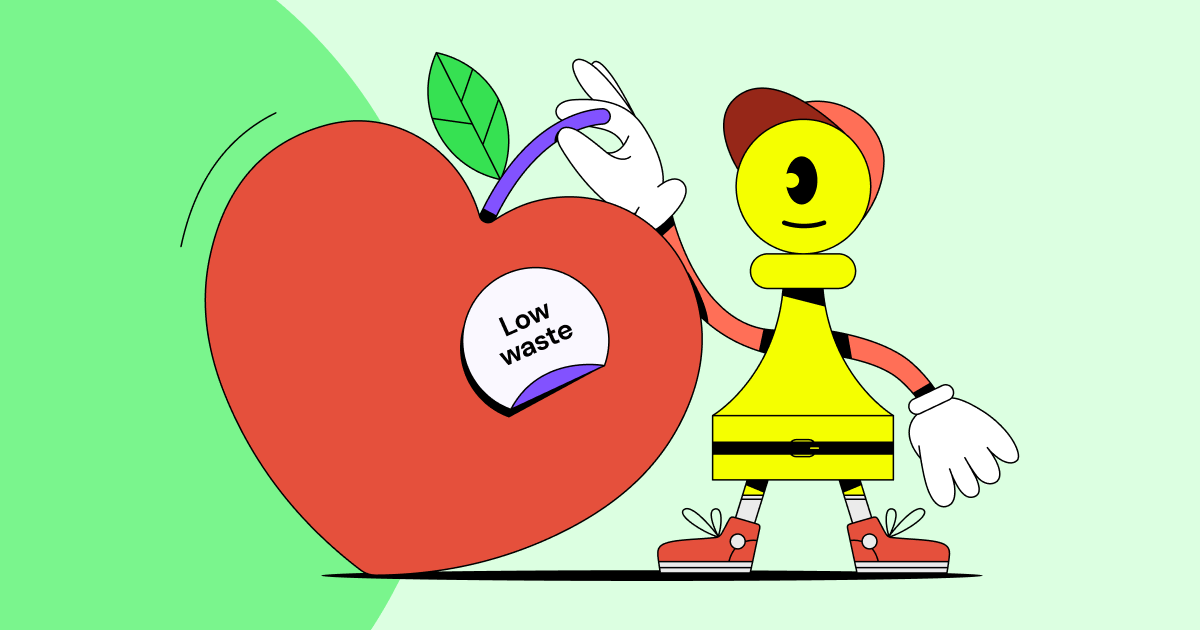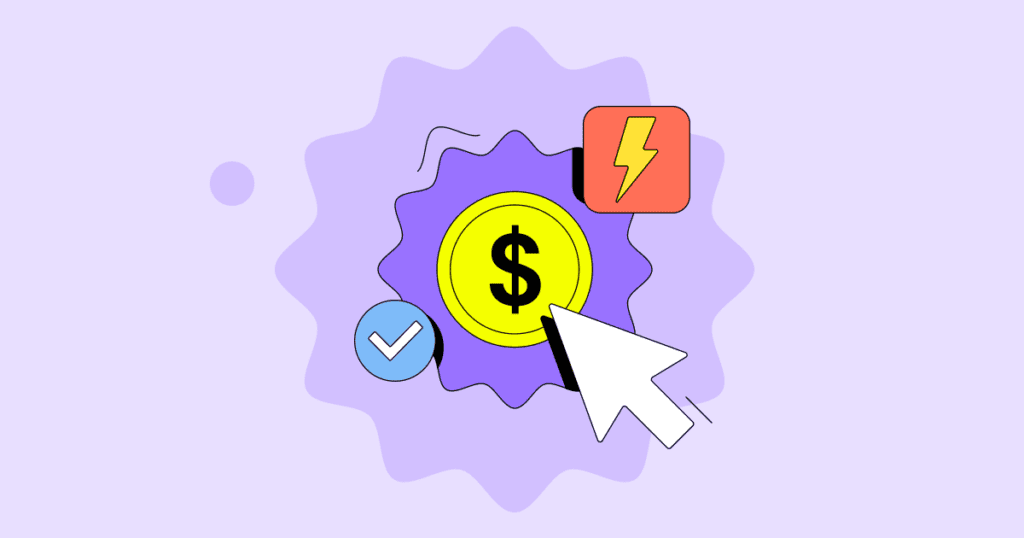Every day, we generate millions of tons of trash – an amount that’s impossible to deal with sustainably. All this waste contributes to air pollution and climate change while affecting our health and well-being.
But since you’re here, we assume you’re already aware of this and want to learn how to simplify your life and reduce your waste. One of the best things you can do is to adopt a low-waste lifestyle. It’s a great way to contribute to a healthier environment and better health while saving money.
This is when the five Rs of zero waste can help. They are “refuse,” “reuse,” “reduce,” “recycle,” and “rot,” and remembering them will help you understand and stick to your new habits.
You can even consider “repair” and “reality” because going zero waste is hard or impossible for many of us. So let’s be real and talk about low-waste living. Unlike zero waste, living a low-waste life is very much doable. And it’s not even that hard if you understand it and follow the right tips.
So before we share a few ideas to help you get started, let’s explain how low waste is different/easier than a zero waste lifestyle.
Low Waste vs. Zero Waste
Low waste refers to a lifestyle where we try to reduce the waste we generate by making conscious choices in our consumption habits. This can include using reusable bags and containers, buying products with minimal packaging, and composting food waste. The goal is to reduce waste as much as possible and not eliminate it completely.
On the other hand, zero waste is a more radical approach that aims to eliminate all waste from our lives completely. This includes reducing waste and reusing and recycling materials to keep them out of landfills. Zero-waste lifestyles often involve purchasing products in bulk, using reusable containers and utensils, and composting food scraps. The goal is to achieve a completely waste-free lifestyle.
Overall, low waste is a lifestyle that aims to reduce waste, while zero waste is a lifestyle that aims to eliminate waste completely. For that reason, a lot of people decide to go with the first option as an easier alternative to the latter.
Top 7 Low-Waste Living Tips for Anyone
Transitioning to a low-waste lifestyle may seem challenging at first, but it’s not impossible. The following tips will help you make it part of your everyday routine without feeling stressed over the changes you have to make.
1. Reduce Your Consumption
The first step to reducing waste is to consume less. This can involve purchasing only what you need, avoiding impulse purchases, and using what you already have before buying new items. Therefore, you should always know what you have in your pantry, fridge, and freezer.
Try to use these items before buying new ones, and save your leftovers for later. You can even use them as snacks instead of all those individually wrapped ones. Not only does it help to reduce waste, but it’s also better for your health and wallet.
2. Use Reusable Items
Using reusable items can help you reduce the amount of single-use items you throw in the trash. These include plastic bags, straws, cups, and utensils. Instead, switch to reusable items, such as cloth shopping bags, cloth napkins and towels, metal water bottles, and food containers.
These reusable alternatives are made from various materials, such as glass, metal, silicone, or fabric, and can be easily cleaned and used repeatedly.
For example, if you love takeaway coffee, always keep your own reusable cup in your bag or purse. This way, you can avoid throwing away countless disposable coffee cups in the trash while still enjoying your favorite coffee.
Besides saving the planet, this may also help you save some cash, as certain coffee shops offer a discount for everyone who brings their own cup. So check out if there’s one nearby, and take advantage of the offer!
3. Declutter
Decluttering is a great way to identify and reduce the number of unnecessary items in your home. Even though this may involve throwing away items you don’t need, it can also help you to identify those that can be recycled. For example, instead of discarding old clothing, you can donate or repurpose it into rags or other items.
But the main idea is to become more aware of what you have and need. That’s because when you have too much stuff, keeping track of what you have can be difficult. As a result, you may end up spending money on things you don’t need, leading to more waste.
4. Avoid Produce Wrapped in Plastic
Nowadays, fresh fruits and vegetables wrapped in plastic are found in almost every supermarket. In fact, they have started to wrap almost every loose piece of produce possible, including those with natural biodegradable packaging.
So instead of throwing away unnecessary plastic and contributing to plastic pollution, you can avoid buying these items. Look for loose produce not packaged in plastic or shop at farmers’ markets. These places offer fresh, locally-grown, and cheaper produce that doesn’t come with packaging.
5. Avoid Tea Bags
Did you know that tea bags can contain plastic? Many tea bags are made with a type of plastic called polypropylene, which helps seal the tea bag and prevent it from breaking apart in hot water. Even tea bags marketed as “biodegradable” or “compostable” may not break down entirely, contributing to microplastic pollution.
Instead, opt for loose-leaf tea. You can buy it in bulk and get only what you need without the packaging. It’s a better alternative for your health and the environment, so it’s a win-win. And even though it’s considered more expensive than tea bags, it’s actually the opposite. The reason is that you can re-steep the tea leaves a few times before discarding them. So it’s really a win-win-win!
6. Repair and Reuse
Repairing items instead of throwing them away and reusing them in a creative way is a fantastic low-waste living tip anyone should consider. For example, use old T-shirts as cleaning rags or turn glass jars into storage containers. Sometimes, you may need to learn some basic repair skills like sewing or woodworking. However, once you learn them, you can use your skill to repair and reuse countless items.
Besides reducing the amount of waste going to landfills, this will also help you save money creatively in the long run. That’s because you can extend the life of the item you already have instead of purchasing a new one.
7. Use Rechargeable Batteries
Producing single-use batteries requires a significant amount of resources, including metals and chemicals. By using rechargeable batteries, you can reduce the demand for new batteries and conserve natural resources.
While there are recycling options, most batteries will end up in landfills releasing toxic chemicals. While rechargeable batteries may cost more upfront, they can save you money in the long run. The reason is that they can be recharged and used multiple times, reducing your need to purchase new batteries.
In Conclusion
Adopting a low-waste lifestyle can seem daunting at first, but making minor changes to your daily habits can reduce waste and simplify your life. From using reusable cups and containers to repairing and reusing items, these low-waste living tips will help you create a cleaner, healthier, and more sustainable world and save money in the long run.
Speaking of saving money, you can use Pawns.app to sell your unused internet bandwidth and take some of your money back. It’s a 100% legit and free app that allows you to share your bandwidth in exchange for cash. You can earn even more by taking paid online surveys in your free time, so it’s worth a shot!













